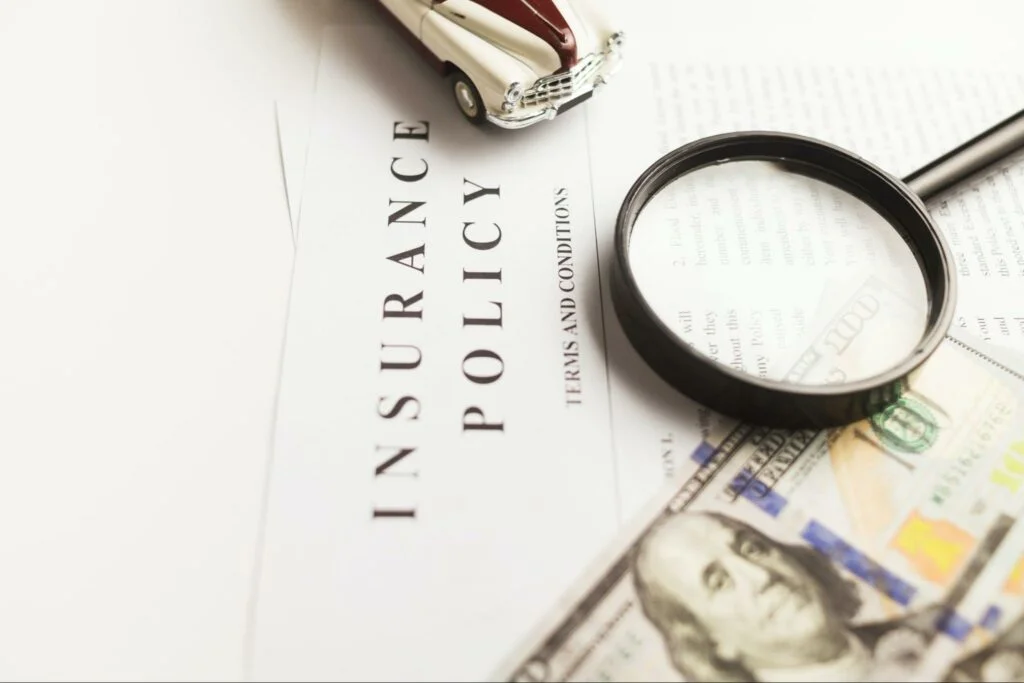As of 2022, the global auto insurance industry is valued at $316 billion dollars. About 87% of Americans eligible for car insurance have a policy. The benefits of such insurance are numerous:
- Protection from high costs in the event of a car accident
- Personal liability protection
- Theft and vandalism protection
- Coverage for uninsured or underinsured motorists
- Emergency roadside assistance and more
These benefits are even more important when running a business dependent on vehicles, such as a taxi or limousine service, a food delivery company, or trucking service.
Despite the many advantages of vehicle insurance, the process of filing and settling a claim can be complex and frustrating. This is especially true if you’ve never done it before.
In this article, we’ll walk you through the basics of insurance claims so that you know what to expect.
What is an insurance claim?
An insurance claim is a formal request for payment from an insurance company. The policyholder – the person who owns the insurance policy – typically makes the request after they have suffered a loss covered by their policy.
For example, if you have car insurance and your car is damaged in a collision, you would make a claim on your policy to cover the repair cost or the replacement cost with the claim settlement.
When can you make an insurance claim?
In theory, you can make an insurance claim any time you suffer a loss that is covered by your policy. Examples of this include:
- Your car is damaged in an accident
- Your truck is stolen
- Your cargo is lost or damaged in transit
- Your business is sued for damages, etc.
However, there are some restrictions on when you can make a claim. For instance, most insurance policies have a waiting period of at least 30 days. This means that you cannot make a claim for any losses that occur within the first 30 days of your policy.
In addition, most policies have a limit on how long you have to make a claim after the loss occurs. This is usually between one and three years. If you do not make a claim within this time frame, your claim will likely be denied.
Other factors you may want to take into account are how much you can expect to receive from your claim and whether or not making a claim will cause your premiums to increase.
For example, if the incurred damage is less than your deductible (the amount you have to pay out of pocket before your insurance company starts paying), you may want to just pay for the repairs yourself.
So, technically, you can file a car insurance claim anytime you want, but it may not always be in your best interest.
How do insurance claims work?
The first step in the claims process is to notify your insurance company as soon as possible after the loss occurs. You will then need to provide the company with information about the loss, such as when and where it happened, as well as any documentation you have, such as a police report or medical bills.
Once the insurance company has this information, they will open an investigation into the claim and may send a claims representative or a claims adjuster to assess the damage. Based on the insurance adjuster’s conclusions, the insurance company will decide whether or not to approve the claim and how much they are willing to pay.
If you are unsatisfied with the insurance company’s decision, you can appeal the decision or file a complaint with your state’s insurance department.
Information you need to gather to at the site of the accident
A successful insurance claim often hinges on the evidence you’re able to provide. The more information you have, the better.
If you’re involved in a car accident, for example, you should try to get the following information:
- The other driver’s name, address, phone number, and insurance information
- The names and contact information of any witnesses
- A police report (if one was made)
- Photos of the accident scene and any damage to your vehicle
- Your insurance policy information
- Any other documentation that may be relevant to your case
This information will not only help support your claim, but it will also help your attorney or insurer determine who is at fault for the accident.
Who can make an insurance claim?
Typically, it is the policyholder who makes an auto insurance claim, meaning the person who owns the insurance policy. This is known as a first-party claim, where your own insurance company is responsible for paying your claim.
However, there are also situations where a third party can make an insurance claim, in a third party claim.
In one example, you, as the policyholder, are the first party. Your car insurance company is the second party. And the third party would be the other driver (or their insurance provider) if you are in an accident and it is determined that you are at fault. The third party would then make a claim against your policy to have their damages paid.
The same would happen if you were the third party in an accident and you chose to sue the policyholder for damages. In this case, you would be the third party making a claim against their policy.
To sum up, almost anyone can make a claim on an insurance policy, depending on the circumstances.
Will my premium go up if I make an insurance claim?
This is a common concern among policyholders, but it is not always the case. Whether or not your premium will increase after making a claim depends on a number of factors, such as the type of insurance you have, the severity of the loss, and whether or not you have filed multiple claims in the past.
For example, if you have collision coverage and are in an accident determined to be your fault, your premium may go up when it comes time to renew your policy. However, if the accident was not your fault, your premium may not increase.
The reason for the rate hike after an at-fault accident is because you are now considered a higher risk to insure. And since insurance companies are in the business of managing risk, they will charge you a higher premium to offset that risk.
State fault laws
A significant concept that we need to touch on is “fault” and how it plays a role in insurance claims.
Fault is determined by who caused the accident or loss to occur. If you are found to be at fault, you were involved in an at-fault accident. If not, you were involved in a not-at-fault accident.
However, the fault matter becomes more complex when we introduce states with different fault laws.
- At-fault states
If an auto accident occurs in an at-fault state, the driver who is responsible for causing the accident is also responsible for the damages. This means that their insurance company will have to pay for the repairs or medical bills of the other driver (or passengers).
- No-fault states
In contrast, in a no-fault state, the driver who is at fault is liable only for the property damage they caused. All medical expenses and other injury-related damages are typically covered by each driver’s own insurance policy, regardless of who is at fault.
There are twelve states with no-fault laws: Florida, Hawaii, Kansas, Kentucky, Massachusetts, Michigan, Minnesota, New Jersey, New York, North Dakota, Pennsylvania, and Utah.
Underinsured motorist coverage
In the United States, it is illegal to drive without car insurance. However, this does not stop some people from doing it.
According to the Insurance Research Council, about 12.6% of drivers in the US were uninsured in 2019. That’s one in eight drivers!
So what happens if you are in an accident with an uninsured driver? Or a driver whose insurance coverage is insufficient to cover the damages they caused?
This is where underinsured motorist coverage comes into play. If you have this type of coverage on your policy, your insurance company will pay for the damages that exceed the other driver’s insurance coverage.
For example, let’s say you are in an accident with an uninsured driver who caused $20,000 in damages. If you have $15,000 in underinsured motorist coverage, your insurance company will pay the remaining $5,000.
Conclusion
Insurance claims are payments made by insurance companies to cover losses or damages incurred by policyholders.
Almost anyone can make a claim on an insurance policy, depending on the circumstances. How you file a claim after a motor vehicle accident depends on whether you are in an at-fault or no-fault state.
All that being said, it is imperative that, as a business owner, you understand how making an insurance claim can affect your business.
If you have any questions about whether or not you should file a claim or the consequences of doing so may be, please don’t hesitate to contact us at Mike Keith Insurance. We specialize in custom-tailored trucking and towing insurance programs and will be happy to help you make the best decision for your business.






